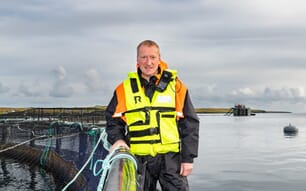Environmental campaigners and representatives of the small-scale fishermen, who will be demonstrating outside the High Court today as the first day of hearings begin, have warned that the outcome of this landmark case could have momentous consequences for the livelihoods of thousands of under-10 fishermen.
The judicial review has been brought by the UK Association of Producers’ Organisations (UKAFPO) against the government’s decision to realign a small amount of consistently unused quota to the under-10 sector - a move aimed at improving the efficient uptake of fishing quota. Producer organisations challenged the move by the Department for Environment, Food, and Rural Affairs on a number of grounds including ‘deprivation of possessions’ – a legal argument implying that they regard quota as a private asset.
Greenpeace and the New Under Ten Fishermen's Association (NUTFA), who have been given permission by the court to intervene in the case, will argue that fishing rights should remain a public good which the government allocates on the basis of sound environmental and economic criteria.
“There’s more to this case than just shifting a bit of quota from one sector to the fleet to another – the future of our seas and fishing communities is at stake,” said Greenpeace ocean campaigner Ariana Densham.
“If the government loses the power to reallocate quota, then the EU’s new and much applauded proposals to help low-impact fishermen won’t be worth the paper they’re written on.”
Producer organisations currently hold about 95 per cent of the UK fishing quota, whilst small-scale fishermen, who make up three quarters of Britain’s fishing fleet, can tap into a tiny four per cent of the overall quota pool.
“After hoarding almost the entire wealth of the UK fishing quota, the industry heavyweights are now doing everything to stop the leftover scraps going to the small boats that desperately need them,” said Ms Densham.
“Greenpeace will be in court to help fight against this gross injustice which is threatening the future of the sustainable and small-scale part of our fleet and the coastal communities which depend on it.”
Jerry Percy, chief executive to NUTFA, commented: “It is simply unacceptable that access to a public resource should be considered as just another commodity, to be bought and sold to the highest bidder, irrespective of its vital social, economic and cultural importance to fishermen and the hundreds of coastal communities they support. This is the last chance saloon for many small scale and sustainable fishermen who will not have a future if their birth right ends up in the hands of a few big players.”



